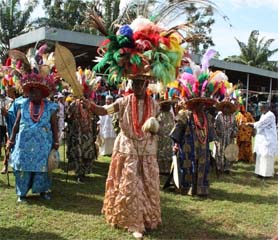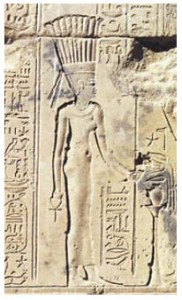Monthly Archives: December 2009
The Politics and Religion of Mûngîkî: The Lions of Kenya? (Re-linked)
Origin and History of Mûngîkî – by Grace N. Wamue
Mûngîkî is a Gikuyu word that is derived from the word mûingî, which mean masses. Mûngîkî refers to a religio-political movement composed mainly of youth of Gikuyu origin, aged 18-40. (However, there are exceptional cases of those in the 40-60-age bracket.) Most of these people are victims of the ethnic conflicts that erupted on the eve of the 1992 multi-party general election in Kenya. Educationally, the majority of these people are Standard Eight and Form Four school-leavers. Most of them are low-income earners in the jua-kali note sector. The group strongly resents accumulation of massive wealth by a few Kenyans, especially those in the top political ranks. They argue that this is done at the expense of the masses who are thus made landless and/or jobless. In a very practical way, the Mûngîkî oppose unfair and unjust practices in the society by sharing among themselves the few resources that they have.
Trials of Tiger Woods – A Discourse By – Jim Muwanga and Jahdey
Peppers, Curmin (Culinary Spices) Will Keep Breast Cancers Away from You – By Jide Uwechia
Peppers, Curmin (Culinary Spices) Will Keep Breast Cancers Away from You – Jide Uwechia
A new study done at the University of Michigan Comprehensive Cancer Center just demonstrated that combining the compounds derived from two spices — pepper and turmeric — could help prevent breast cancer by limiting the growth of stem cells that promote tumor growth. Pevention before occurence is always the best practice of medicine.
The Turkish Slaves of Muurish Egypt: The Mamelukes and Co. – A Retrospect
Baghdad and the Mamelukes: 9th century AD
The Abbasid caliphs of Baghdad unwittingly create a group of considerable power in the Middle East. To strengthen their armies, they acquire slaves from the nomadic Turks of central Asia. These slaves, who become known as Mamelukes (from the Arabic mamluk, ‘owned’), distinguish themselves in the service of the caliphate and are often given positions of military responsibility. Well placed to advance their own interests, they frequently take the opportunity.


